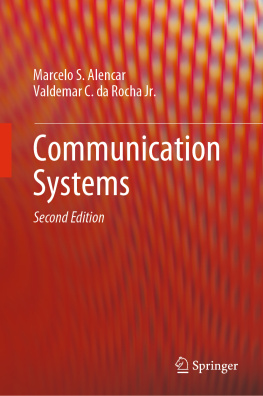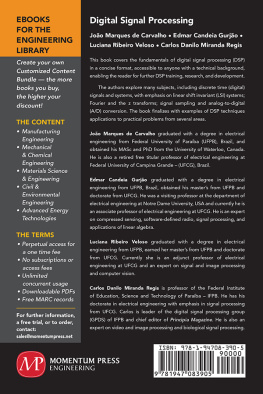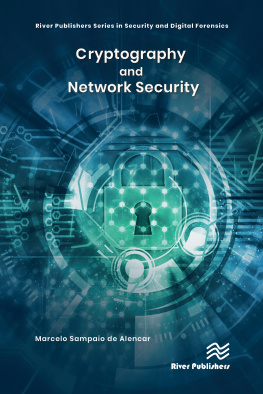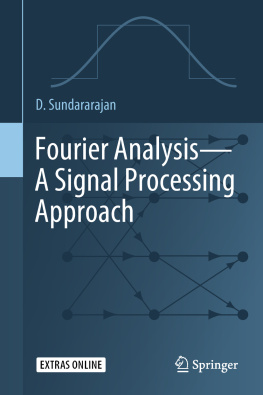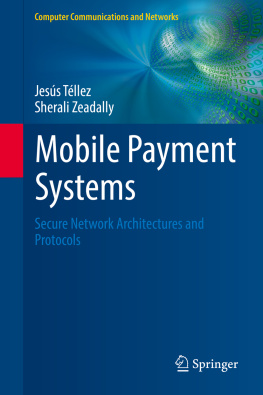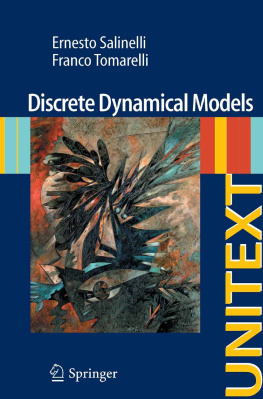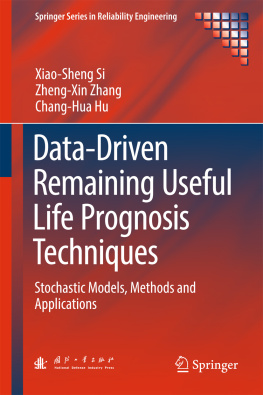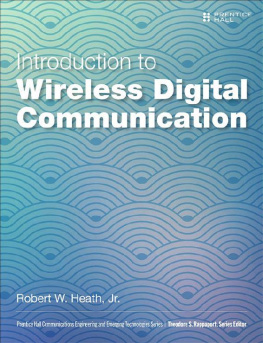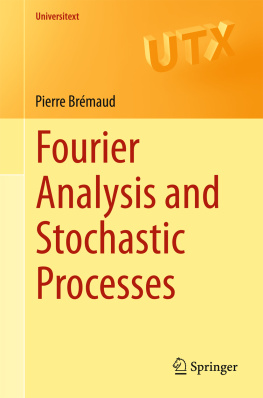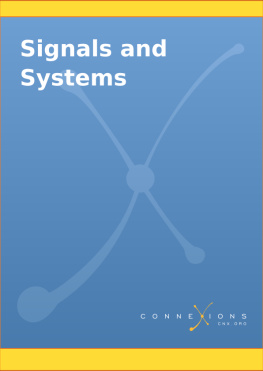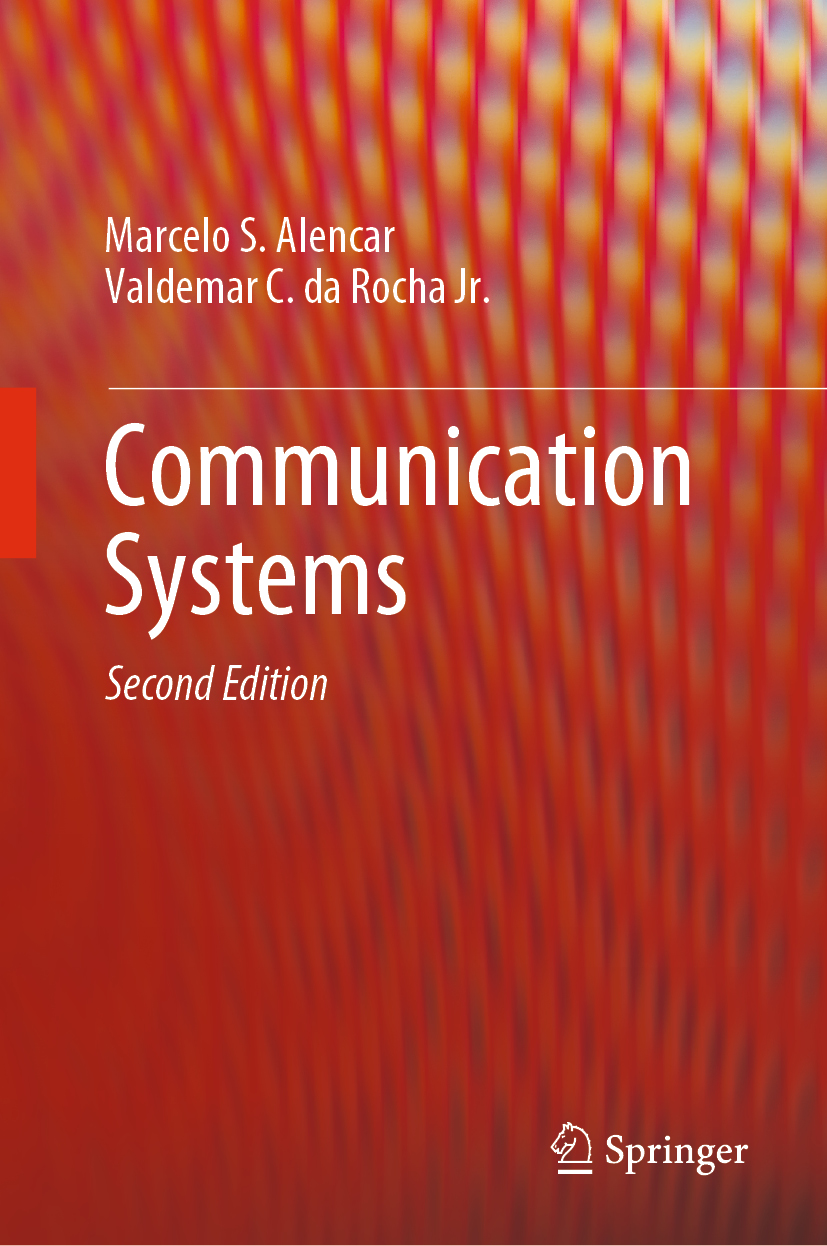Marcelo S. Alencar and Valdemar C. da Rocha Jr.
Communication Systems
2nd ed. 2020
Marcelo S. Alencar
Institute of Advanced Studies in Communications, Federal University of Bahia, Salvador, Paraba, Brazil
Valdemar C. da Rocha Jr.
Institute of Advanced Studies in Communications, Federal University of Pernambuco, Recife, Pernambuco, Brazil
ISBN 978-3-030-25461-2 e-ISBN 978-3-030-25462-9
https://doi.org/10.1007/978-3-030-25462-9
Springer Nature Switzerland AG 2005, 2020
This work is subject to copyright. All rights are reserved by the Publisher, whether the whole or part of the material is concerned, specifically the rights of translation, reprinting, reuse of illustrations, recitation, broadcasting, reproduction on microfilms or in any other physical way, and transmission or information storage and retrieval, electronic adaptation, computer software, or by similar or dissimilar methodology now known or hereafter developed.
The use of general descriptive names, registered names, trademarks, service marks, etc. in this publication does not imply, even in the absence of a specific statement, that such names are exempt from the relevant protective laws and regulations and therefore free for general use.
The publisher, the authors and the editors are safe to assume that the advice and information in this book are believed to be true and accurate at the date of publication. Neither the publisher nor the authors or the editors give a warranty, expressed or implied, with respect to the material contained herein or for any errors or omissions that may have been made. The publisher remains neutral with regard to jurisdictional claims in published maps and institutional affiliations.
This Springer imprint is published by the registered company Springer Nature Switzerland AG
The registered company address is: Gewerbestrasse 11, 6330 Cham, Switzerland
This book is dedicated to our families.
Preface
This book is the result of several years of teaching and research at the Federal University of Campina Grande, Federal University of Pernambuco, and Federal University of Bahia, Brazil. It is intended to serve as a textbook for courses dealing with Communication Systems, Cellular Mobile Systems, or Modulation Theory. The modulation theory is dealt with using stochastic processes, which remains a novel approach for undergraduate texts. The book is suitable for the undergraduate as well as the initial graduate levels of Electrical Engineering courses.
Chapter introduces the concepts of probability, random variables, and stochastic processes and their applications to the analysis of linear systems.
Speech coding is dealt with in Chap. presents amplitude modulation with random signals, including digital signals and performance evaluation methods.
Quadrature amplitude modulation using random signals, including SSB, QUAM, QAM, and QPSK, is the subject of Chap. explains angle modulation with random modulating signals, including frequency and phase modulation, FSK, and PSK.
Channel modeling is the subject of Chap. deals with transmission and reception of the modulated carrier and presents several features of the transmitting and receiving equipment.
Chapter .
The book has five appendices. Appendix A covers Fourier series and transforms, Hilbert transform, and their properties. Appendix B presents formulas used in the text. Appendix C shows tables of the radio-frequency spectrum. Appendix D presents the CDMA cellular system. Appendix E presents the GSM cellular system. An important feature is the many examples and problems to be found throughout the book.
Marcelo S. Alencar
Valdemar C. da Rocha Jr.
Salvador, Brazil Recife, Brazil
Acknowledgements
The authors are grateful to Prof. Elvino S. Sousa, University of Toronto, Canada; Prof. Paddy Farrell, Prof. Bahram Honary, and Prof. Garik Markarian, Lancaster University, UK; and Prof. Michael Darnell, York University, UK, for technical communications and useful discussions related to communication systems.
The authors are also grateful to all the members of the Communications Research Groups, certified by the National Council for Scientific and Technological Development (CNPq), at the Federal University of Bahia, at the Federal University of Campina Grande and at the Federal University of Pernambuco, for their collaboration in many ways, helpful discussions and friendship, as well as our colleagues at the Institute of Advanced Studies in Communications.
The authors wish also to acknowledge the contribution of Francisco Madeiro, from the State University of Pernambuco, and Waslon T. A. Lopes, from the Federal University of Paraiba, who wrote the chapter on speech coding, and the support of Thiago T. Alencar, who helped with translation of parts of the text.
The authors are indebted to their families for their patience and support during the course of the preparation of this book.
Finally, the authors are thankful to Mary E. James, Zoe Kennedy, Alex Greene, and Melissa Guasch, from Springer, who strongly supported this project from the beginning and helped with the reviewing process.
Contents
About the Authors
Marcelo S. Alencar
was born in Serrita, Brazil in 1957. He received his Bachelor Degree in Electrical Engineering, from Universidade Federal de Pernambuco (UFPE), Brazil, 1980; his Master Degree in Electrical Engineering, from Universidade Federal da Paraiba (UFPB), Brazil, 1988; and his Ph.D. from University of Waterloo, Department of Electrical and Computer Engineering, Canada, 1993. Marcelo S. Alencar has more than 38 years of experience in engineering, and 28 years as an IEEE Member, currently as Senior Member. For 18 years, he worked for the Department of Electrical Engineering, Federal University of Paraiba, and supervised more than 30 graduate and several undergraduate students. From 2003 to 2017, he was Chair Professor at the Department of Electrical Engineering, Federal University of Campina Grande, Brazil. Between 1982 and 1984, he worked for the State University of Santa Catarina (UDESC). He spent some time working for MCI-Embratel and University of Toronto, as Visiting Professor. Since 2017, he is Visiting Professor at the Federal University of Bahia, Salvador, Brazil.
He is Founder and President of the Institute of Advanced Studies in Communications (Iecom). He has been awarded several scholarships and grants, including three scholarships and several research grants from the Brazilian National Council for Scientific and Technological Development (CNPq), two grants from the IEEE Foundation, a scholarship from the University of Waterloo, a scholarship from the Federal University of Paraiba, an achievement award for contributions to the Brazilian Telecommunications Society (SBrT), an award from the Medical School of the Federal University of Campina Grande (UFCG), and an achievement award from the Engineering School of the Federal University of Pernambuco, during its 110th year celebration. His biography is included in the following publications: Whos Who in the World and Whos Who in Science and Engineering, by Marquis Whos Who, New Providence, USA.

